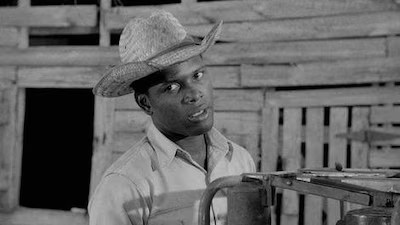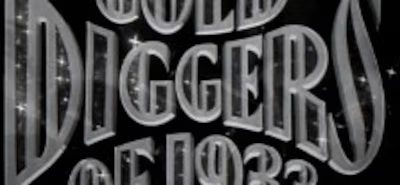Louise Beavers

About
Biography
Biography
A vivacious and prolific character player, Louise Beavers kept company with the more acclaimed Hattie McDaniel as America's foremost filmic embodiment of a "mammy," a subservient but jovial African-American maid or cook. Like McDaniel, she was heavy-set and fairly dark-skinned; her roles generally presented her as extremely cheerful, loyal (if sometimes less than bright) and distinctly asexual. Her omnipresence in US film from the 1920s through the 50s testifies to the racist stereotypes so central to the history of an entire culture, but it would be far too facile to blame players like Beavers for their involvement in such image-making. After all, typecasting placed particular limits on the roles that blacks could play and, in some sense, Beavers' persona doubtless reflected at least some of the realities of black women's social backgrounds and careers. What is also important is how players like Beavers not only became a likable part of the cultural landscape despite the limitations of their roles, but also how their best work transcends the limitations of stereotyping. Furthermore, Beavers' characters often acted as a comical "Greek chorus" commenting on the antics of her films' white stars. Thus, even if no one intended any subversion, Beavers' presence could hint at the follies of racism within dominant society.
Beavers began her performing career as a minstrel show singer, but when she moved to Hollywood in the early 20s, it was while working as a maid to actress Leatrice Joy. Before long, though, she made her feature debut in "Gold Diggers" (1923). She acted in other silent films such as the 1927 version of "Uncle Tom's Cabin" but really made her mark with the coming of sound. In nearly 100 films between 1929 and 1960, working in every genre and at every studio, Beavers played maids supporting such stars as Kay Francis ("Girls About Town" 1931), Constance Bennett ("What Price Hollywood?" 1932), Jean Harlow ("Bombshell" 1933), James Stewart and Carole Lombard ("Made for Each Other" 1939), William Powell and Myrna Loy ("Shadow of the Thin Man" 1941), Wallace Beery ("Barbary Coast Gent" 1944), Deanna Durbin ("For the Love of Mary" 1948), Betty Grable and Dan Dailey ("My Blue Heaven" 1950), Ginger Rogers ("Teenage Rebel" 1956) and, in her last film, "The Facts of Life" (1960), Bob Hope and Lucille Ball.
Beavers was a very sunshiny performer, cast less often in period roles than McDaniel and, with a voice higher pitched than McDaniel's more gravely tones, a bit less inclined to be surly. For all her servant roles, though, Beavers could dish right alongside a co-star such as Mae West ("She Done Him Wrong" 1933) or snap off a lively wisecrack quite well, sometimes by "playing dumb." And, at the end of one of her better-remembered films, "Mr. Blandings Builds His Dream House" (1948), her housekeeper saves the day for harried ad executive Cary Grant by coming up with a much needed product slogan ("If You Ain't Eatin' Wham, You Ain't Eatin' Ham"), thus highlighting the importance of black hired help in the white household. Most importantly, Beavers essayed an extremely rare second lead in support of Claudette Colbert in the first film version of the famous tearjerker "Imitation of Life" (1934), as the two play single mothers coping with both careers and daughters to raise. In Beavers' case her on-screen daughter (Fredi Washington) tries to pass for white and deny her darker mother, thus foregrounding the divisive nature of racism.
McDaniel was to have taken over for Ethel Waters in the title role of the early family comedy "Beulah" (CBS, 1950-53) but illness forced her to withdraw after only a few episodes, and so Beavers made her TV series debut as yet another family housekeeper saving the white family from sitcom peril. Despite good ratings, Beavers quit the series after a year (1952-53), only to return in a smaller but similar role for one season in "The Danny Thomas Show" (ABC, 1953-54). Work declined as the decade wore on before Beavers' death from a heart attack, but her talent and genuine contribution to the history of the black image in US film were noted by her induction into the Black Filmmakers Hall of Fame in 1976.
Filmography
Cast (Feature Film)
Cast (Short)
Life Events
1923
Film debut in "Gold Diggers"
1934
Played rare second lead in the first film version of Fannie Hurst's best-selling novel, "Imitation of Life"
1952
Played the title role in the early TV sitcom, "Beulah", for its final season; succeeded Ethel Waters and Hattie McDaniel in the role
1960
Last film, "The Facts of Life"
1976
Posthumously inducted into the Black Filmmakers Hall of Fame
Videos
Movie Clip












Trailer
























